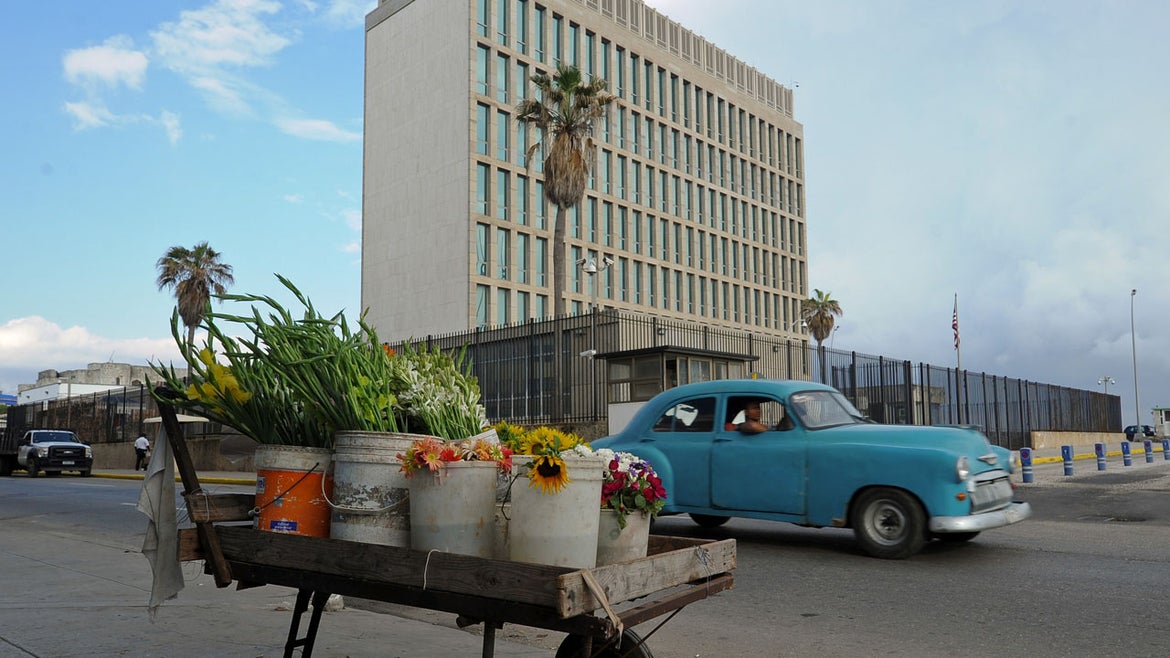The strange medical condition continues to be investigated and has been considered an "act of war."
A new CIA report has ruled out that the so-called “Havana Syndrome” came from a hostile foreign power, CBS News reported.
“In this extensive investigation we have so far not found evidence of state-actor involvement in any incident," the CIA said in a statement. "[W]e assess it unlikely that a foreign actor, including Russia, is conducting a sustained, worldwide campaign, harming U.S. personnel with a weapon or mechanism."
“Havana Syndrome” is the strange neurological disorder that affected many American diplomats and CIA operatives in Havana, Cuba, starting in 2016 and then soon after other U.S. representatives in Europe came down with symptoms.
Symptoms include nausea, dizziness, ear-popping and headaches, and is often preceded by a sensation of heat or pressure, CBS News reported.
Initial beliefs were that the Cuban government was using a weapon blasting microwaves that went beyond the range of human hearing as Americans began visiting Cuba in late 2016 as the boarders opened for tourism, but as cases developed around the globe, the theory has been sidelined, according to BBC.
Since President Joe Biden has taken office a year ago, over two dozen cases of “Havana Syndrome” have been reported from Vienna, Austria, which has been “a global capital of spycraft since the early days of the Cold War,” New York Magazine said in 2021.
The CIA did add in their latest report that they vowed to intensify their focus on a group of two dozen "priority" cases that remain unexplained.
"We assess that the majority of reports of [anomalous health incidents] can be reasonably explained by medical conditions or environmental and technical factors, including previously undiagnosed illnesses," a senior CIA official said to CBS News.
The CIA’s interim findings during their investigation have found that the majority of cases could probably be attributed to a pre-existing medical condition, or environmental factors, or stress, a senior official said, according to The Guardian.
However, the CIA said they are not done in their investigation.
"While we have reached some significant interim findings, we are not done," CIA Director William Burns said in a statement. "We will continue the mission to investigate these incidents and provide access to world-class care for those who need it."
A group known as Advocacy for Victims of Havana Syndrome said in a statement that the CIA report "must not be the final word on the matter,” according to NPR.
"The CIA's newly issued report may be labeled 'interim' and it may leave open the door for some alternative explanation in some cases, but to scores of dedicated public servants, their families, and their colleagues, it has a ring of finality and repudiation," their statement said.
The Defense Department as well as an independent panel of experts are still conducting their own investigations which have yet to publish reports, The Guardian reported.
The illness, which has been dubbed “Havana Syndrome,” had been called an “act of war” by some, while others have said it could be a new form of surveillance, according to BBC.
In June, a bipartisan bill was passed called the Helping American Victims Afflicted by Neurological Attacks (HAVANA) act. The bill would authorize financial support for American officials reporting symptoms related to “Havana Syndrome.”
"Far too many 'Havana Syndrome' victims have had to battle the bureaucracy to receive care for their debilitating injuries. American personnel who have undergone these attacks while serving our country should be treated the same way we would treat a soldier who suffered a traumatic injury on the battlefield," Maine Republican Sen. Susan Collins, a coauthor of the bill, said in a statement.






